Yo Orystar: Who Created the Scandalous Track?
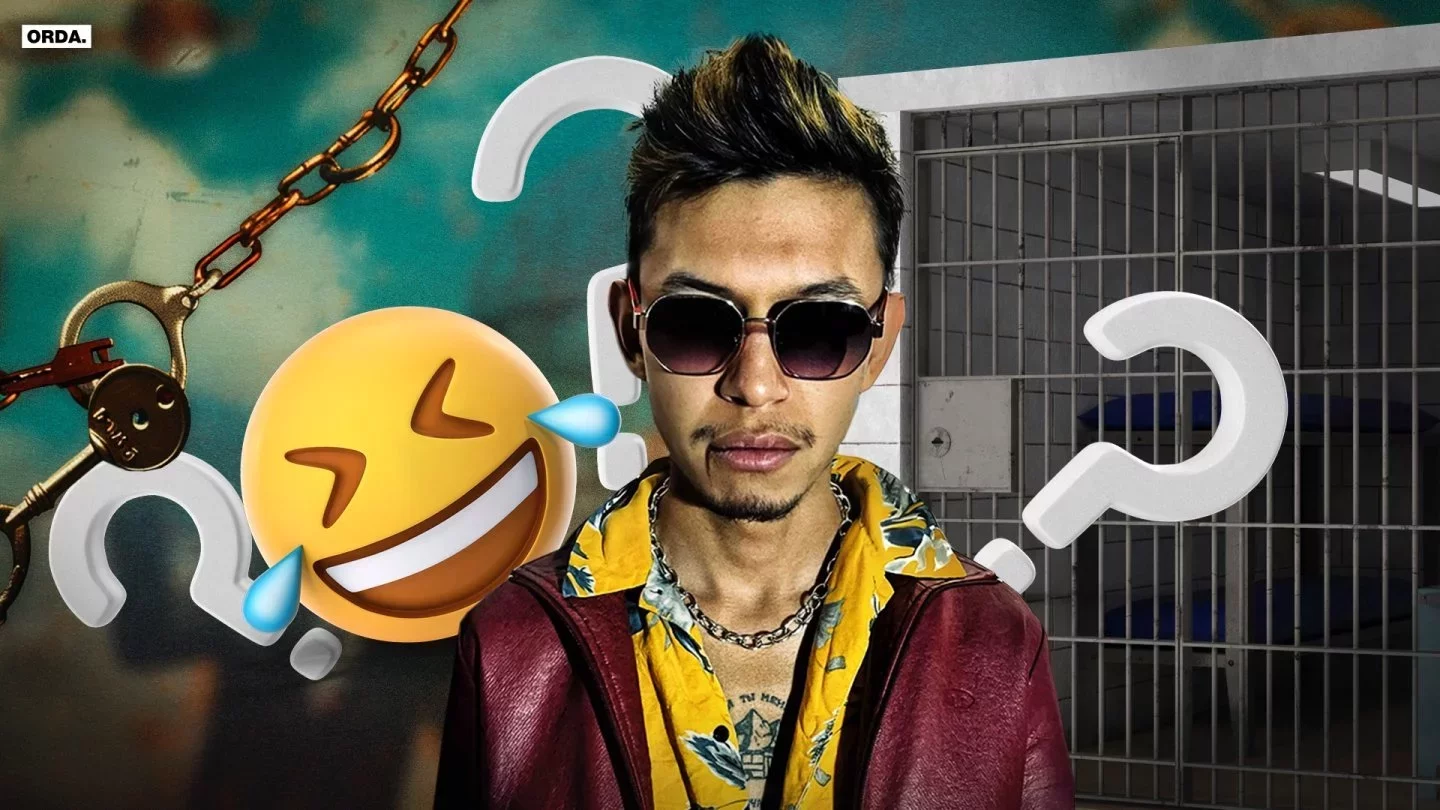 Photo: Orda.kz
Photo: Orda.kz
Orda.kz looked into the controversial song behind Temirlan Yensebek’s arrest, the "Extremist Materials" register, and questions of legal fairness.
Last Friday, police searched the home of Temirlan Yensebek, who runs the satirical page QazNews24, and took him into custody.
Two days later, he was placed in pre-trial detention and accused of violating Article 174 of Kazakhstan's Criminal Code, which addresses "Incitement of ethnic discord."
According to an official statement from the Almaty Police Department, the arrest is unrelated to Yensebek’s satirical posts.
"The reason is different — he posted content containing clear signs of incitement of ethnic discord, expressed as an insult to representatives of an entire ethnic group. This is unacceptable in our multinational country, where, according to the Constitution, no one can be subject to any discrimination based on origin, nationality, language, religious beliefs, or any other circumstances. Such actions jeopardize the harmony and unity among our people, which are one of the fundamental principles of our state,” the PD statement says.
The statement does not specify which content they are referring to.
Presumably, it is about the track “Yo, Orystar” ("Hey, Russians"– Ed.), which was featured in a post about Tina Kandelaki.
Where does this song come from?
Last summer, Temirlan Yensebek’s girlfriend, Maria Kochneva, was sentenced to ten days of administrative detention for publicly reciting lines from the song.
At that time, no incitement of ethnic discord was found. Maria is an ethnic Russian.
The girl herself recalls knowing the lyrics since the days of button phones and Bluetooth when the track was a neighborhood joke often shared for laughs among diverse groups of Kazakhs and Russians.
The song’s questionable words were seen as so absurd that they evoked awkward smiles rather than genuine offense. As Maria notes, it’s difficult to imagine anyone listening to the track seriously.

The composition has no artistic meaning. It contains many obscenities and insults addressed to Russians and Uzbeks, making it virtually impossible to recite, as the track will turn into a continuous three-minute squeak.
Who's The Author?
Despite its simplicity, the composition has been published thousands of times under hundreds of nicknames since the early 2000s. There is even a version performed with the help of AI; the text was superimposed on various adaptments. It is presented on almost all streaming platforms.
For example, the publication on Apple Music was uploaded at the end of December 2024 (almost 11 months after the post was posted in a satirical media outlet).

And the same author uploaded the song to YouTube in January 2025.
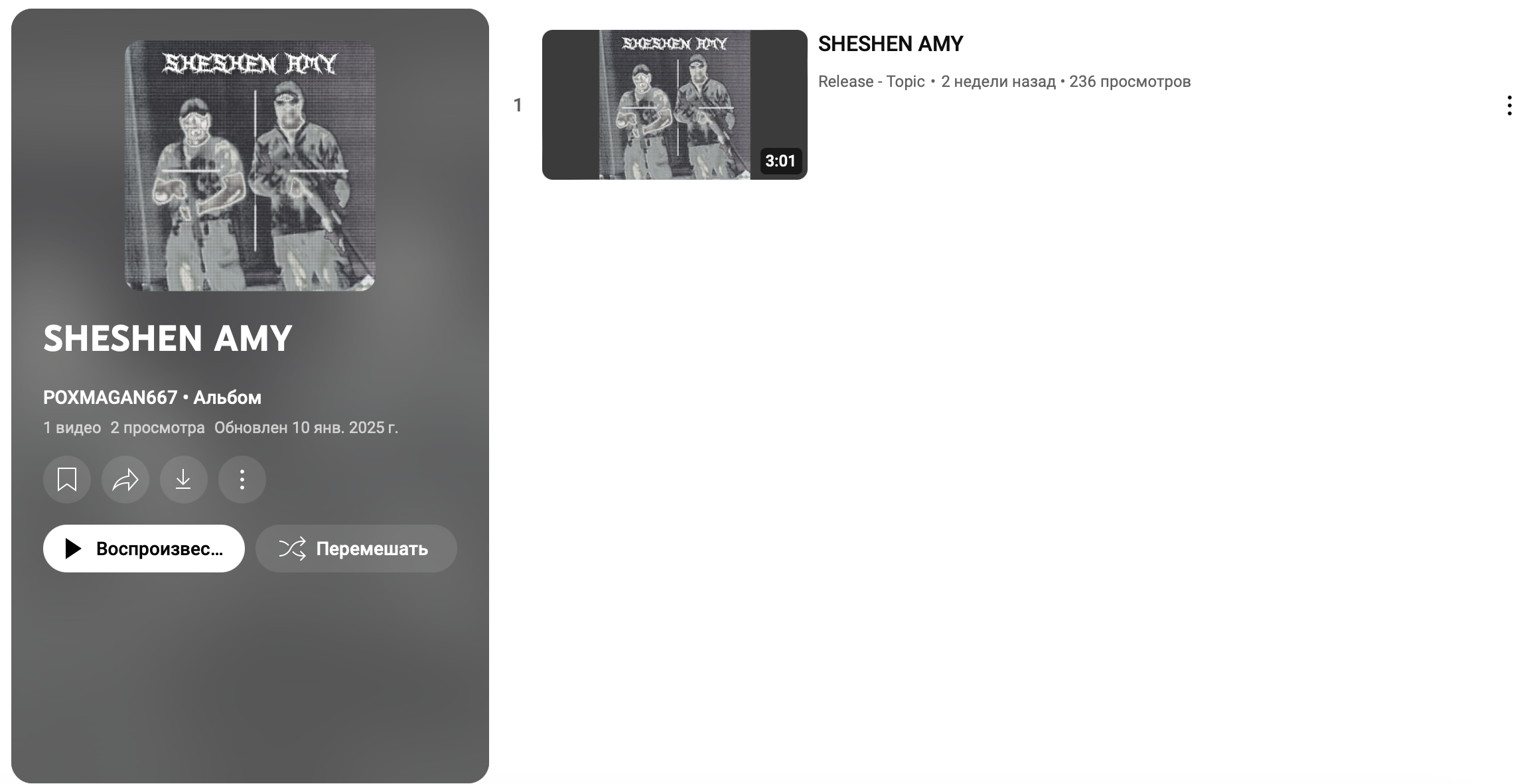
We found the earliest digital trace on a YouTube channel created in December 2012.
The video has more than a million views, and the channel features only a track with a random video sequence.
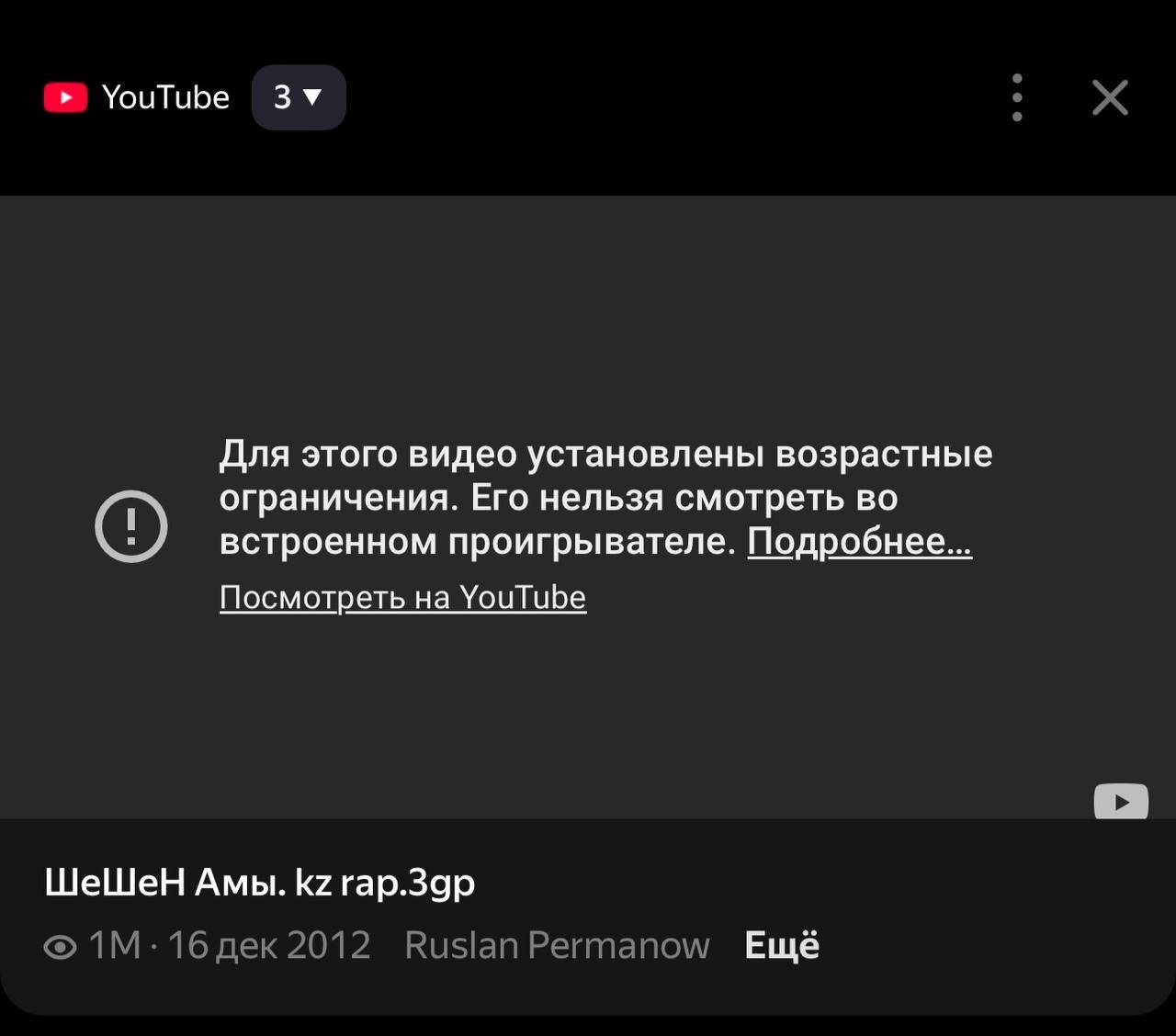
We found out that this song was published in 2013 on the Dadahan Hasan channel, where it has 436 views.
Four years ago, it was uploaded to the MRST KLDM channel, where it has collected 384 thousand views.
The track mentions two notable names, Zukhra and Fatima, which are not random insults but references a popular 2005 Uzbek film.
This detail, along with the inclusion of Uzbeks — another group seemingly targeted by the song’s creators — and their ties to cultural elements of the neighboring country, has led many to speculate that the performers are likely from southern Kazakhstan.
The post featuring the track has sparked a flurry of reactions, ranging from clever and lighthearted jokes to outright angry comments, reflecting a mix of humor and frustration among users.
To learn the roots of this rap art, we asked director Sayat Saruar, who in the 2000s actively read lyrics to beats, for a comment.

Back then, it was common for guys to grab a microphone at home and record tracks for fun. No one really knows who created “Yo Orystar,” but it was clearly produced in a home setup. At the time, no one took it seriously; people just shared it via Bluetooth. I think it was just a drunken boys' beef. Now, there are more conditions for making quality records, but in the 2000s, it was done on the wave of the boom in the rap industry, says Sayat Saruar.
After the war in Ukraine began, the track started gaining traction on social media.
Although this song has been around for 20 years, it has never been trendy until now. That all changed after the war in Ukraine broke out. People began making videos expressing their opposition to what was happening in the neighboring country. As they posted these videos, the song resurfaced and became a part of them, says Temirlan's close friend, Darkhan Sharipov.
Unlisted
After reviewing several links to Kazakhstani registries of materials banned for distribution, we can confirm that the track in question does not appear on the list.
The register of religious literature and informational materials considered extremist and prohibited from import, publication, or distribution in Kazakhstan includes audio files and videos.
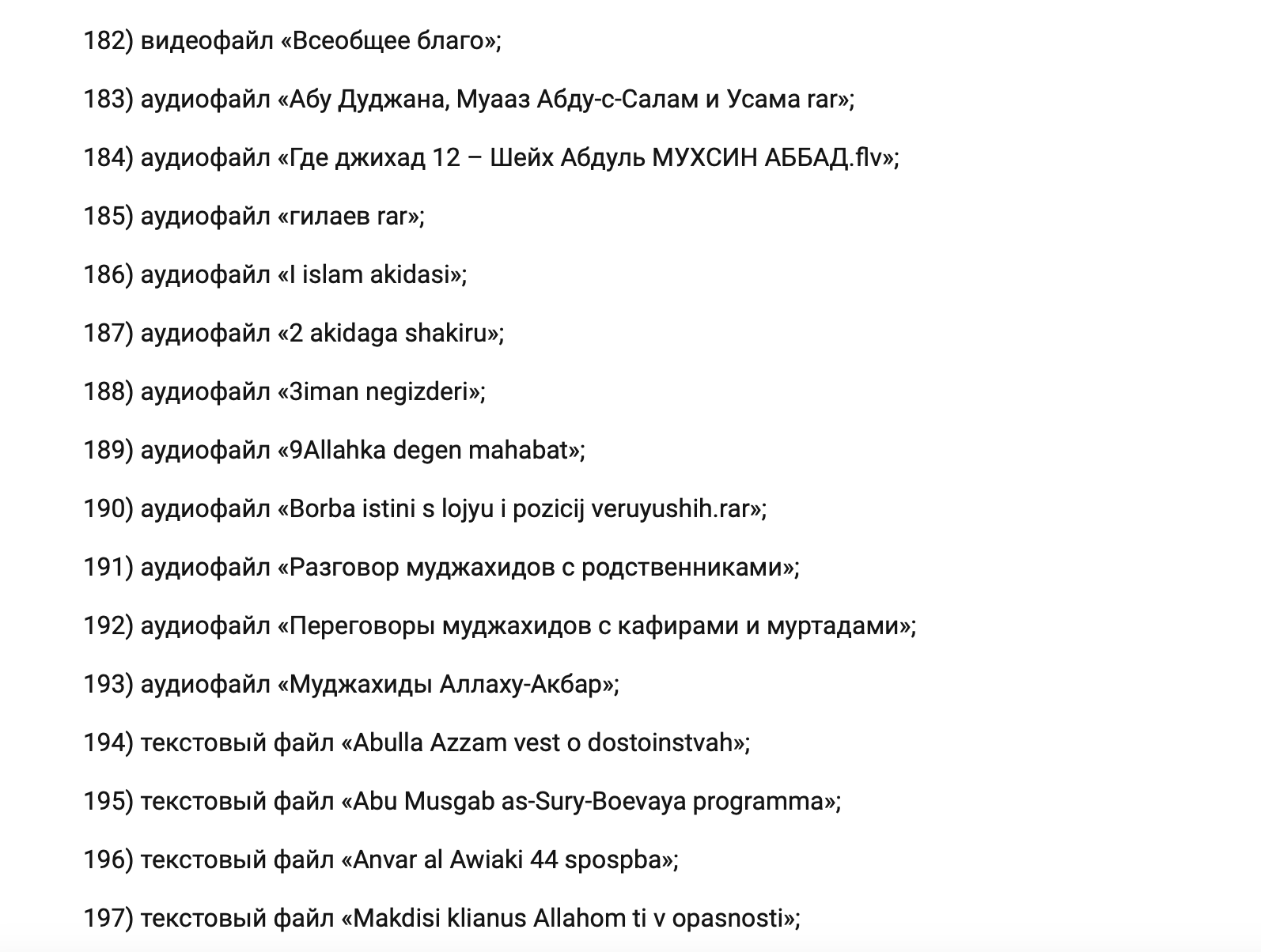
The Counter-Terrorism Committee has published a list on the official website of the Republican Public Association, which contains 715 entries, all focused on religious materials again.
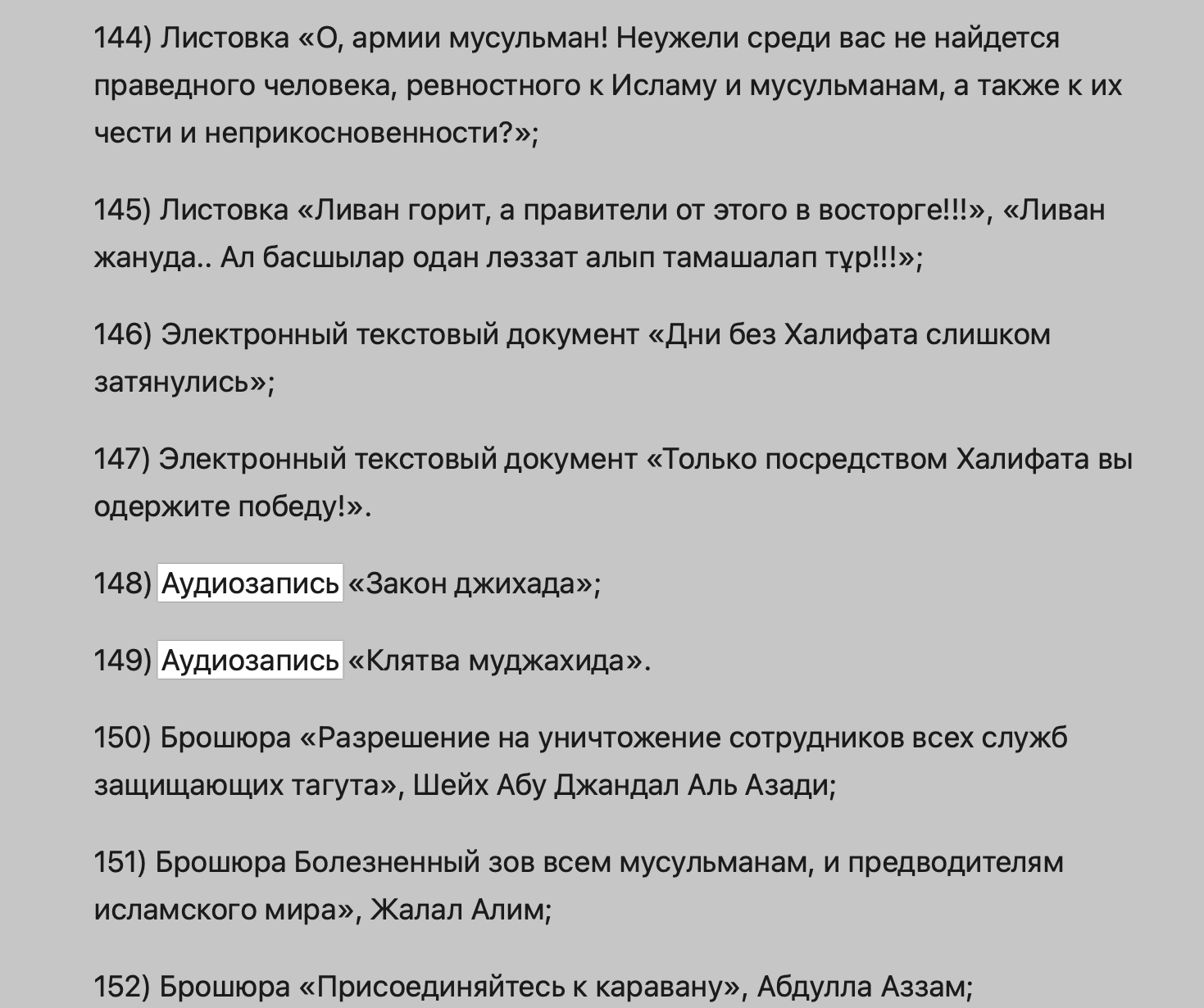
The most recent update, dated November 1, 2024, shows 1,175 prohibited titles.
While it is possible that this song could be included, it is nearly impossible to determine precisely what is on the list, given the lack of detail on specific materials.
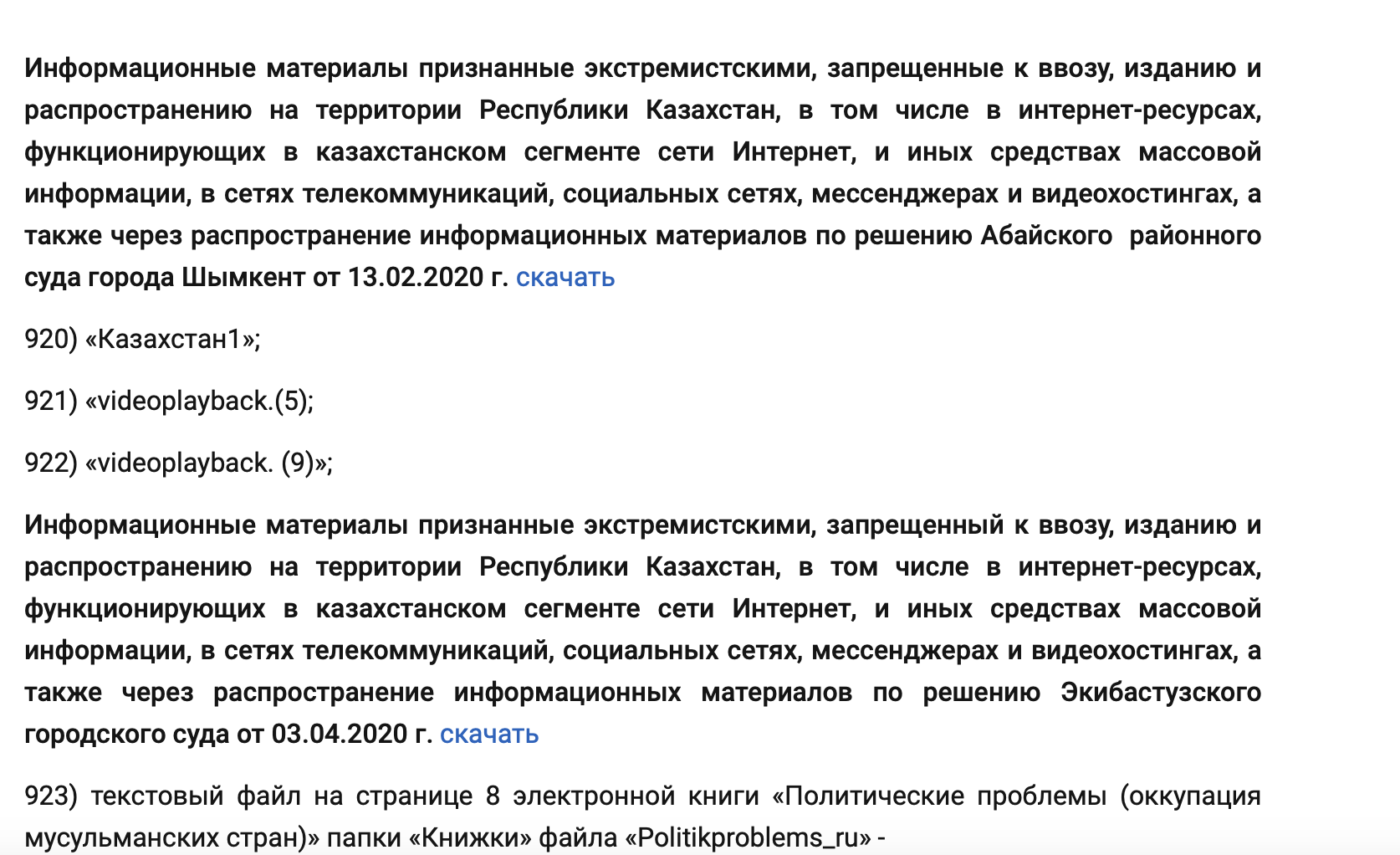
We contacted the Ministry of Culture and Information to clarify whether the track is listed in the registry, and to find out how frequently the registry is updated.
It would also be interesting to know where else Article 174 of the Criminal Code might apply in such cases.
However, according to lawyer Sergey Utkin, whether or not a song is included in the registry doesn’t matter in this case.
Anyone can write a song, poem, or even some words or speech containing insults. To judge or prosecute someone for it, do you first need to include it in some register? Of course not. If there is a crime, in this case, incitement of discord, it does not matter whether it is in the register or not,the lawyer explains.
In Kazakhstan, for scientific and research purposes, you can study fascist ideology; you can still read Hitler’s “Mein Kampf,” the lawyer notes.
Specific literature remains banned in Kazakhstan, such as The Godfather-in-Law by Rakhat Aliyev, although this book isn’t listed in the registry either. According to Utkin, the very framework of Article 174 of the Criminal Code remains somewhat vague.

Where abuse of the law's wording is possible, it will undoubtedly happen.
In my opinion, it might be worth considering the removal of this article from the Criminal Code. Let’s look at the example of the United States: the First Amendment of the Constitution guarantees freedom of speech, opinions, and expressions, preventing Congress from passing laws that limit these freedoms. The only exception is incitement to violence. Interethnic or social discord is a delicate topic. However, these articles are often used for other purposes. For example, conflicts between the public and officials might be categorized as social discord, which is natural given the opposition of interests. There should be no ambiguous language in the Criminal Code. The line between a crime and something that is allowed should be clear to everyone, just like the definition of theft. Right now, that line is unclear, and people suffer because of subjectivity in interpretations.
If we discuss our case specifically, the court must consider several facts. For example, a disclaimer warns that the published material is not reliable.
If a person clearly warns that everything they present is a fairy tale and ridicules the situation, this context can certainly play a significant role. Incitement to discord is a serious issue, as it can lead to hostility between people. Therefore, it’s somewhat reasonable to introduce bans on such material. A criminal case is often initiated when there is no crime yet, but only signs of a potential offense. And what are these signs? They are vague, like fog, and may later materialize into a crime. In many ways, initiating a case based on these signs is standard practice. I wouldn’t criticize law enforcement for opening a case. The song may indeed contain signs of incitement to discord, especially if it includes offensive language or targets a particular nationality — even in a satirical form. However, in my opinion, an arrest in this case seems unnecessary.
Another important detail: the investigation must prove that there was an intent to incite ethnic discord and that Temirlan deliberately wanted to act in such a capacity.
Direct intent must be proven by the investigation and then by the court. Once proven, Temirlan’s lawyers can argue that the fact his girlfriend is Russian by nationality and that they are in a romantic relationship should be considered. In reality, he had no such intent, says the lawyer.
This article doesn’t allow for guilt based on negligence; it requires intent, Utkin emphasizes.
As for those who recorded videos with the track or posted the song on social media, if the issue lies in the text, they could potentially face the same legal responsibility.
Platforms that allow users to add sound to posts are also implicated.
You can choose this offensive voiceover for your publication on Instagram now. Incidentally, Meta deleted songs by actual domestic artists.
No order has been issued regarding using the controversial Meta track despite the potential for such action.
Maria Kochneva notes that this isn't the first time QazNews24 publications have sparked an investigation.
After the report about assigning Nazarbayev the status of a god, the investigation lasted a year and a half.
The examination ultimately concluded that it was satire, not the spread of false information.
Now, the article is different—it is an incitement of discord.
A post responding to Tina Kandelaki’s statements about the oppression of the Russian language in Kazakhstan has led to serious consequences.
Meanwhile, Kandelaki has been barred from entering both Kazakhstan and the European Union for her remarks accusing others of Russophobia.
Orda.kz will continue monitoring the situation.
Original author: Alexandra Mokhireva
Latest news
- President Toqayev Sends Nazarbayev Birthday Wishes
- Toqayev Appoints New Ambassadors in Series of Diplomatic Changes
- Unidentified Object Resembling Drone Found in Atyrau Region
- Trump and Zelenskyy Discuss Air Defense Needs
- Rapper Qurt: Wife Withdraws Statement in Court
- Head of Azerbaijani Cultural Autonomy in Moscow Region Reportedly Loses Russian Citizenship
- Defense Secretary Hegseth Paused Ukraine Weapons Shipment Despite Pentagon Assessment — NBC
- Prosecutor General's Office Confirms Detention of Kozhamzharov's Associate in Torture Case
- State to Scale Back Role in Competitive Sectors
- Uzbek Banker Kidnapped in Paris
- Former Financial Police Officials Reportedly Detained, Case Concerns Torture
- Progress MS-31 Launches from Baikonur Carrying Fuel, Water, and Scientific Cargo
- Two Men to Face Trial for Homicide of Missing Atyrau Woman, Body Not Found
- Russia Launched Massive Strike on Ukraine Following Trump–Putin Call
- Rapper Qurt Accused of Abuse by Wife
- Pavlodar Region: Rescuers Seek Lower Retirement Age Amid Strain of Risky Work
- Businessman Vagif Suleymanov Detained in Moscow
- Kashagan Field Reaches One Billion Barrels of Oil Extracted
- Lenin Street in Osh Renamed After 19th-Century Kyrgyz Leader
- New Uranium Plant Launched in Turkistan Region with French Partnership

